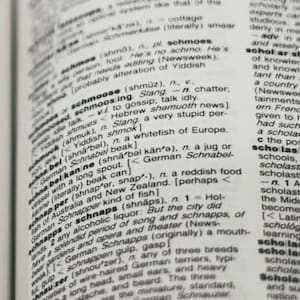all very well: Idiom Meaning and Origin
What does ‘all very well’ mean?
The idiom "all very well" is used to express agreement or acknowledgement of a situation or point, while implying that there may be reservations, concerns, or limitations regarding its effectiveness or viability. It suggests a balance between recognition and possible skepticism.

Idiom Explorer
The idiom "it's all good" is used to express that everything is okay or there are no problems. It is often used to reassure others or to indicate that there is no reason to be worried or concerned.
The idiom "if nothing else" is used to emphasize the sole positive quality or result when everything else may not be satisfactory.
The idiom "good job" is used to express approval or praise for someone's work or accomplishment.
The idiom "good and" is used as an intensifier to indicate something is very much or completely in a certain state or condition.
The idiom "go along with" means to agree or accept something, often reluctantly or without enthusiasm.
The idiom "go all the way" means to fully commit or complete a task or action without hesitation or reservation.
The idiom "for good and all" means to do something once and for all, or to fully complete or resolve a situation. It implies a final and decisive action, leaving no room for further discussion or uncertainty.
The idiom "fair enough" is used to express acceptance or agreement with a statement or situation, acknowledging that it is reasonable or justifiable. It is often used as a casual response in conversations, indicating understanding without further objection.
Meaning: Everything is going well or smoothly.
The Alluring Depths of 'All Very Well'
Idiom: *all very well*
*All very well* is a common English idiom that expresses agreement or approval of something, but with reservations. It acknowledges the validity or merits of a statement while also recognizing potential issues or concerns that need to be considered.
The origins of *all very well* are believed to stem from the archaic usage of the word *well*, which meant “world” or “universe” in Old English. This interpretation suggests that *all very well* might have originally meant “everything in the world”, emphasizing inclusiveness while acknowledging potential drawbacks or challenges.
Another possible origin could be from legal language, specifically phrases like “all is well,” which were used in the 19th century to declare that all legal requirements had been met. Over time, this phrase could have evolved into *all very well*, indicating that although something may seem satisfactory on the surface, there may still be underlying concerns or reservations.
It is worth noting that while *all very well* is primarily used in British English, it is also recognized and understood in American English, although it is not as commonly used in American English speech or writing.
In contemporary contexts, *all very well* is often used to express skepticism or criticism while acknowledging the validity of a statement or idea. It functions as a way to highlight potential drawbacks or limitations without outright dismissing or rejecting the underlying concept.
For example, consider the sentence: "It's all very well to advocate for renewable energy, but what about the economic consequences?" Here, *all very well* recognizes the importance of supporting renewable energy while introducing the potential negative impact on the economy.
Another common usage of *all very well* is to convey frustration or dissatisfaction with a situation or someone's actions, indicating agreement with reservations. For instance, someone might say, "It's all very well that he apologized, but the damage has already been done." This statement acknowledges the apology while highlighting the lasting impact or consequences of the preceding actions.
In addition to *all very well*, there are related idioms that convey similar meanings. One such idiom is "all good", which is often used to express agreement or approval without reservations. It signifies that everything is satisfactory and there are no major concerns or drawbacks.
Another related idiom is "it's all good", which is similar in meaning to *all very well*. It expresses agreement or approval, but also acknowledges potential issues or reservations. This idiom is commonly used in casual conversations and implies that while there may be some concerns, overall, the situation is acceptable or fine.
Similarly, the idiom "fair enough" is related to *all very well*. It is used to acknowledge a point or opinion as valid or reasonable, while also introducing a different perspective or raising a concern. It indicates a level of agreement or acceptance, but with reservations or qualifications.
*all very well* is an idiomatic expression that conveys agreement or approval with reservations. Its origins can be traced back to archaic language and legal terminology. In contemporary usage, it serves to acknowledge the validity of a statement while introducing concerns or criticisms. Alongside *all very well*, there are related idioms like "all good", "it's all good", and "fair enough" that express similar meanings and nuances. By using these idioms, speakers and writers can navigate the complexities of agreement and disagreement, highlighting both positive and negative aspects of a particular idea, proposition, or situation.
Example usage
Examples:
- She thinks she can handle everything on her own, but that's all very well until something goes wrong.
- It's all very well for him to criticize, but he never offers any solutions.
- Getting exercise is all very well, but you also need to eat a healthy diet to stay in shape.
The idiom "all very well" is often used to express a conditional or contrasting statement. It indicates that something may seem satisfactory or acceptable in certain situations, but may not be appropriate or sufficient in others.
In the first example, it is mentioned that everything being handled independently is fine until a problem arises, suggesting that self-reliance has its limitations.
The second example emphasizes criticism without providing solutions, indicating that offering constructive alternatives is essential.
In the third example, exercise is mentioned as being beneficial, but it is implied that maintaining a healthy diet is equally important for overall fitness.
More "Adverb" idioms



